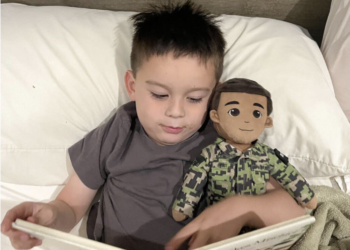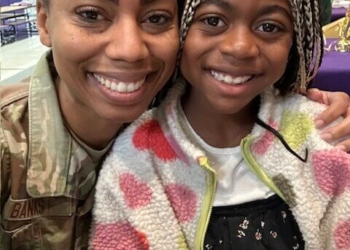Teaching kids about money can be a daunting task. Here are five ways to teach your military kid about money and give your child a good financial foundation.
Start with financial literacy
From understanding coin values to the finer points of investing, ensuring your kids are financially literate is a good starting point. Make discussions about money part of your routine, even with small children, and add children’s books about money into your bedtime reading to teach five concepts: earning, spending, saving, investing and generosity.
Personal finance guru Dave Ramsey offers practical tips to teach kids of every age, from putting young kids’ savings in a glass jar so they can watch it grow, to helping teens set a budget and open a bank account. For older children, the Council for Economic Education’s offers lesson plans that can be done at home. Generation Wealthy breaks down more complex topics for teenagers with videos and free resources for budgeting, bill paying and tracking spending.
Making choices with money
Ramsey advocates teaching ‘opportunity cost’ starting in elementary school – the idea that you have a finite amount of money, and you must make choices about how to spend it.
With our young kids, we frame choices in ways they’ll understand. If we buy candy at the store now, it takes money away from a toy they’re hoping for later.
Having the discussion each time a choice comes up lets kids be part of money decisions, sometimes in unexpected ways. Our six-year-old son reminded us we had groceries at home one night my husband and I were exhausted and planned to order takeout, and we ended up making a $4 pizza we had in our freezer instead of ordering a $30 delivery.
Set family savings goals
Once kids understand opportunity cost, set goals as a family for what you’d like to save toward, and include your kids in the planning and payoff. Each PCS is an opportunity for a fresh start to teach your military kid about money.
During our time stationed in Japan, many families with older kids worked together to save toward trips through Asia. Their kids handled budgeting, comparing prices on plane tickets and hotels to find deals, and came up with creative ways to earn and save to meet their goal. For our family’s next move to coastal Norfolk, Va., we’re saving as a team toward a paddleboard.
Make sure spending aligns with your values
After your kids understand the basics of how money works, teach them to make wise choices with it.
If you donate to charity, make donation decisions as a family. As you change duty stations, find local ways to give so they can visit personally and see the difference their time and money can make.
Give kids a chance to learn
From tried-and-true businesses like lemonade stands and summer lawn-care services, running a small business gives kids first-hand experience in the value of dollars and the hard work it takes to earn them.
Deployments are a great opportunity for teenagers to step up with babysitting and ‘parent helper’ services that keep younger kids occupied during the dreaded witching hours. If you live on base, check the rules about private businesses, and let your kids follow their interests – crafty kids might find great satisfaction in selling their handiwork on Etsy and talented bakers might earn extra cash from a birthday cake business.







































